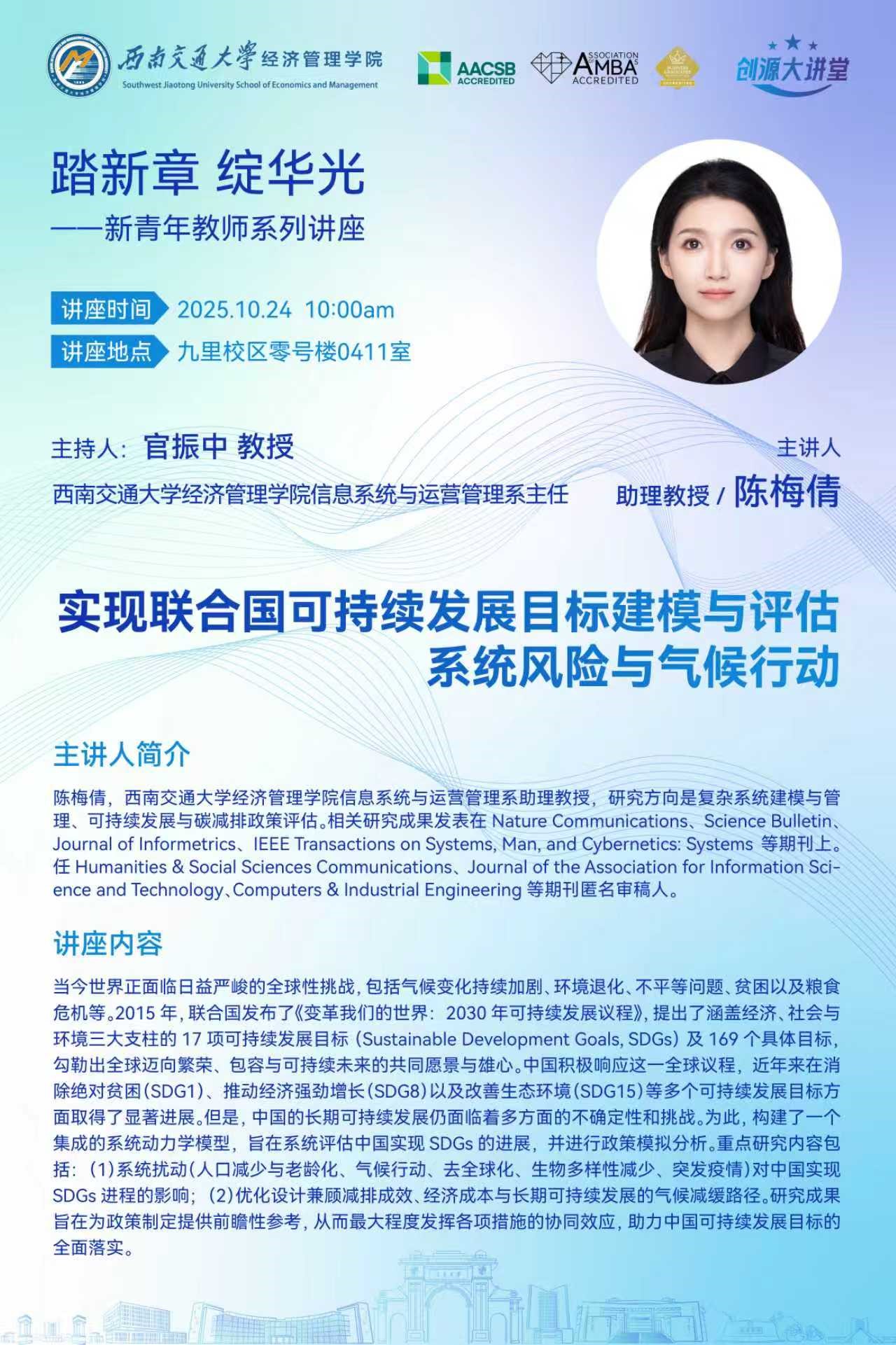Speaker Profile
CHEN Meiqian is an Assistant Professor in Department of Information System and Operation Management at School of Economics and Management, Southwest Jiaotong University. Her research focuses on complex systems modeling and management, sustainable development, and the evaluation of carbon reduction policies. Her work has been published in journals such as Nature Communications, Science Bulletin, Journal of Informatics, and IEEE Transactions on Systems, Man, and Cybernetics: Systems. She also serves as a reviewer for journals including Humanities & Social Sciences Communications, Journal of the Association for Information Science and Technology, and Computers & Industrial Engineering.
Abstract
The contemporary world confronts pressing global challenges, including intensifying climate change, environmental degradation, inequality, poverty, and food crises. In 2015, the United Nations adopted "Transforming our world: the 2030 Agenda for Sustainable Development," which outlines 17 Sustainable Development Goals (SDGs) and 169 associated targets across the three pillars of economy, society, and environment. This agenda represents a shared vision and ambition for a prosperous, inclusive, and sustainable global future.
China has actively embraced this global agenda, making significant progress on multiple SDGs in recent years, such as eradicating extreme poverty (SDG 1), promoting robust economic growth (SDG 8), and improving the ecological environment (SDG 15). However, China's long-term sustainable development continues to face numerous uncertainties and challenges.
To address this, an integrated system dynamics model has been developed to systematically assess China's progress toward achieving the SDGs and to conduct policy simulation analysis. The research focuses on two key areas:
1. Assessing the impact of systemic shocks—such as demographic decline and aging, climate action, global transitions, biodiversity loss, and public health emergencies—on China's SDG implementation.
2. Designing optimal climate mitigation pathways that balance emission reduction effectiveness, economic costs, and long-term sustainability.
The findings aim to provide forward-looking insights for policymakers, thereby maximizing the synergies of various policy measures and supporting the comprehensive achievement of China's sustainable development goals.
Date/Time: October 24, 10:00 a.m.
Venue: Room 0411, 0 Teaching Building, Jiuliu Campus


